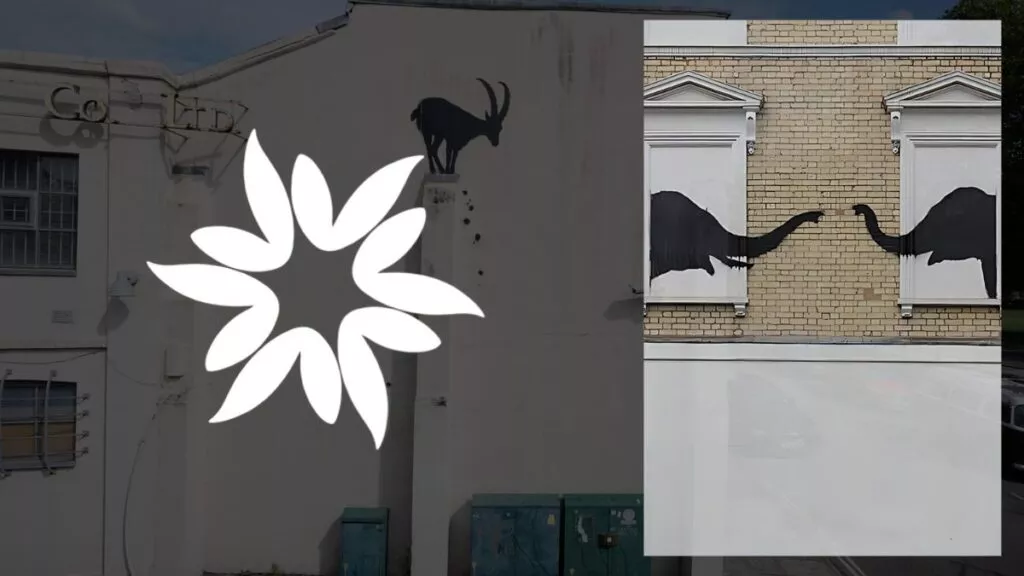Key Takeaways
- Artist Nancy Baker Cahill has created an augmented reality artwork called State Property (2023) in response to the overturning of Roe v. Wade and subsequent restrictions on abortion rights in the US.
- State Property features a bright red, exploding uterus above the US Supreme Court and selected statehouses, symbolizing widespread opposition to recent anti-abortion laws and highlighting the violence and fracturing of democracy they represent.
- By using AR technology, State Property aims to create a disruptive and attention-grabbing experience, with the piece accessible to anyone within a half-mile radius of targeted locations via the free app, 4th Wall.
- The success of State Property suggests that art can captivate audiences and incite meaningful dialogue around contemporary challenges, inspiring other artists to use their creative abilities for social commentary and change, while encouraging the public to engage with and question the world around them.
- As a visionary artist, Baker Cahill continues to push boundaries and explore interdisciplinary collaborations in her work, using technology and art for positive societal transformation.
In response to the overturning of Roe v. Wade in 2022 and the subsequent restrictions on abortion rights in the US, artist Nancy Baker Cahill has created an augmented reality (AR) artwork called State Property (2023).
The piece, which depicts a bright red, exploding uterus, is displayed above the US Supreme Court and selected statehouses.
The artwork symbolizes the widespread opposition to recent anti-abortion laws and highlights the violence and fracturing of democracy that these laws represent.
State Property: A Powerful Symbol
The uterus in State Property appears to crack apart, emphasizing the damaging impact of anti-abortion legislation on both women’s rights and democracy.
Baker Cahill stated that the artwork is a reflection of the punitive, misogynistic laws and the forced birth agenda that has taken hold in several states.
By using AR technology, State Property aims to create a disruptive and attention-grabbing experience.
The piece is accessible to anyone within a half-mile radius of the US Supreme Court building and other targeted locations via the free app, 4th Wall.
The app also allows for the artwork to be viewed in various positions, adding a sense of unpredictability to its presentation.
Expanding the Installation
The artist plans to expand the installation to government buildings in Texas, Nebraska, Georgia, Florida, and North Carolina in the coming days.
These states have been selected due to their recent aggressive anti-abortion measures. Texas, in particular, has made headlines due to a judge’s ruling to invalidate the Food and Drug Administration’s approval of the abortion pill mifesterone.
The ongoing legal battle surrounding the availability of the abortion pill highlights the contentious nature of reproductive rights in the US.
Baker Cahill’s artwork serves as a visual representation of the continued struggle for women’s autonomy and the importance of raising awareness about the consequences of anti-abortion legislation.
In 2018, Baker Cahill founded 4th Wall, a free augmented reality art app and platform that challenges conventional public art and explores the possibilities of inclusive creation and expression.

Nancy Baker Cahill: Pushing Boundaries with Technology and Art
Nancy Baker Cahill, a new media artist based in Los Angeles, is known for her work in virtual reality, social justice, and collaboration.
The 2022 Los Angeles County Museum of Art (LACMA) Art + Technology Lab Grant recipient and 2021 Williams College Bicentennial Medal of Honor winner has always sought to explore the intersections of art, technology, and political engagement.
In 2018, Baker Cahill founded 4th Wall, a free augmented reality art app and platform that challenges conventional public art and explores the possibilities of inclusive creation and expression.
The app has served as a powerful tool for collaboration with hundreds of artists and offers a way to engage with critical examinations of systemic power.
Exploring New Frontiers
As a visionary artist, Baker Cahill continues to push boundaries and explore interdisciplinary collaborations in her work.
Her past projects have been exhibited in various locations, including Los Angeles, Boston, New York City, Austria, South Korea, and Switzerland. One of her recent installations, “Slipstream Times Square,” was featured in Times Square’s July 2022 Midnight Moment, the world’s largest and longest-running digital public art program.
The piece transformed the screens of Times Square into a pulsating, immersive experience, engaging viewers in an unexpected way.
In the coming months, she will begin a residency in London, where she hopes to further expand her creative output and cultural engagement.
Her dedication to using technology and art for positive societal transformation has garnered international recognition and inspired others to imagine a more equitable and inclusive future.
Impact and Future Endeavors
As the debate over reproductive rights continues to escalate in the US, artworks like State Property serve as a powerful reminder of the importance of artistic expression in raising awareness, challenging established norms, and engaging the public in critical conversations.
Baker Cahill’s AR installation not only highlights the ongoing struggle for women’s reproductive autonomy but also demonstrates the potential for technology to be used as a platform for activism and social change.
The response to State Property has been overwhelmingly positive, with many viewing the artwork as a bold and innovative way to address a contentious issue.
The installation has also sparked conversations around the role of art in politics and the responsibility of artists to engage with pressing societal concerns.
As technology continues to advance, it is likely that more artists will embrace digital mediums like augmented reality to explore and express their perspectives on critical issues.
The success of State Property suggests that such art can captivate audiences and incite meaningful dialogue around contemporary challenges.
In the future, Baker Cahill plans to continue using her artistic talents and technological know-how to create thought-provoking and boundary-pushing art installations.
By doing so, she hopes to inspire other artists to use their creative abilities for social commentary and change, while also encouraging the public to engage with and question the world around them.
In conclusion, the exploding uterus artwork hovering above the US Supreme Court and other government buildings serves as a compelling reminder of the power of art and technology in addressing complex social issues.
As artists like Nancy Baker Cahill continue to push the envelope and challenge societal norms, they inspire meaningful dialogue and contribute to the ongoing fight for reproductive rights and gender equality in the US and beyond.








